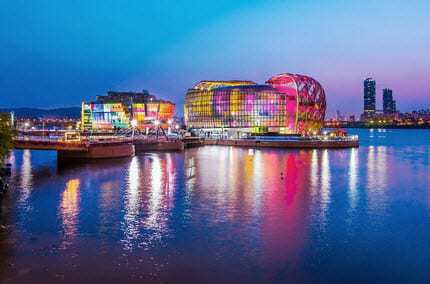The quick response codes have been installed in hotels and lodgings close to PyeongChang.
The city of Gangneung, which is located close to PyeongChang, where the 2018 Winter Olympics will begin in February, has added Olympics accommodations QR codes to help tourists. The quick response code installations are being added to the accommodations where tourists will be staying when they attend the games next month.
The QR codes have been posted in hotels and other lodgings so tourists can scan and obtain information.
The Olympics accommodations QR codes can be found in hotel rooms and other convenient locations. Once they are scanned, they provide users with information by way of their smartphones in any of several languages. That way, even though most of the visitors to South Korea will not actually be able to speak Korean, there will still be several ways to conveniently obtain the information they will want to have while they are there.
The Gangneung municipal government announced the launch of the QR code program this week. It will involve thousands of different hotels and other types of lodgings where Olympics attendees will be staying.
The Olympics accommodations QR codes will offer information in a handful of different languages.
So far, the city government says there will be about 9,000 rooms at around 700 hotels, motels, inns and other types of lodging where the QR codes will be posted. These businesses will be easy to see and scan. Once a hotel guest uses his or her smartphone to scan the barcode, it will automatically direct him or her to the company’s website.
That website will offer the visitor information regarding the Olympics, including various events, times and venues. It will also give them access to tourism information for Gangneung city as well as public transportation schedules. The goal is to make it easier for tourists to be able to navigate and enjoy the city and the Olympics while they’re staying in the area.
The Olympics accommodations QR codes also provide access to additional types of convenient service such as tour registration, taxi hailing, food delivery and activities that are sometimes challenging for people who don’t speak Korean to be able to participate in. The site information and tools are available in: Korean, English, Japanese, Mandarin, Chinese and Taiwanese.
